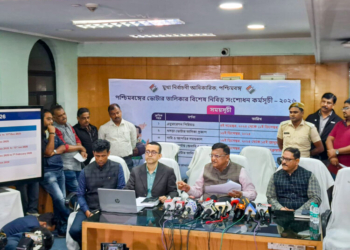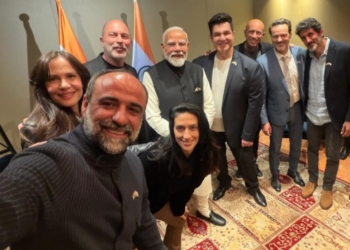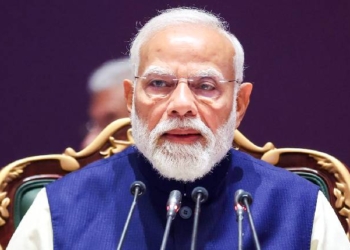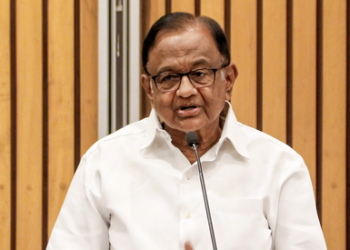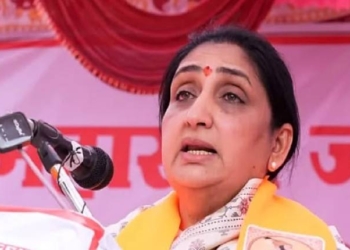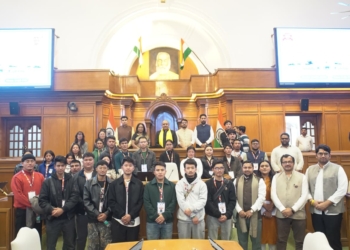New Delhi: The G20 Parliamentary Speakers in a joint statement issued at the conclusion of the P20 summit on Saturday, reaffirmed their commitment to continue to engage in parliamentary diplomacy and dialogue in relevant fora as a catalyst for promoting international peace, prosperity and harmony, including supporting peaceful resolution of conflicts and disputes.
The P20 Parliamentarians also underscored the urgency for disaster risk reduction in the face of natural disasters and other emergencies, sometimes with magnitudes beyond the response capacity of affected countries.
“We affirm that international cooperation among countries at all levels, including Parliaments as well as public and private and philanthropic organisations, is essential to mobilise flexible and sustainable resources, for preparedness and disaster risk reduction, for anticipatory and early action, for rapid response and early recovery activities, as well as for building community-level resilience,” the joint statement said.
The Parliamentarians also condemned terrorism in all its forms and manifestations, including those on the basis of xenophobia, racism and other forms of intolerance, or in the name of religion or belief, recognising the commitment of all religions to peace. They said it constitutes one of the most serious threats to international peace and security.
“We strongly condemn all terrorist acts against critical infrastructure, including critical energy facilities, and against other vulnerable targets. All acts of terrorism are criminal and unjustifiable, regardless of their motivation, wherever, whenever and by whomsoever committed,” the statement noted.
“Effective counterterrorism measures, support for the victims of terrorism and the protection of human rights are not conflicting goals, but complementary and mutually reinforcing. A holistic approach on the basis of international law can effectively counter terrorism,” it said further.
“Efforts to increase the effectiveness of international cooperation should be strengthened to deny terrorist groups safe havens, freedom of operations, movement and recruitment, as well as financial, material or political support. In the light of our legislative, budgetary and oversight functions, we pledge to play our role in combating terrorism and violent extremism,” the statement elaborated.
The statement noted with concern that globally women remain significantly under-represented in national Parliaments.
“As leaders in our Parliaments, we commit to assessing and improving the level of gender-sensitivity of our Parliaments by taking steps to close any gaps identified through this process. In this context, we welcome the adoption of the Women’s Reservation Bill, 2023 by the Parliament of India in September 2023.
“We also thank the United Nations and the IPU for their efforts and affirm that gender equality and youth participation are essential for achieving the 2030 agenda,” the statement read.
It also welcomed the African Union as a permanent member of the G20 and strongly believed that inclusion of the African Union into the G20 will significantly contribute to addressing the global challenges of present times.
“In this context, in the framework of P20, we will develop close parliamentary ties with the Pan-African Parliament,” the statement added.
“We acknowledge the role of G20 as the premier global forum for international economic cooperation, and for delivering effective policy solutions to address current and future global challenges in order to promote sustainable and inclusive development across the world.
“We also emphasise the importance of the G20 Parliamentary Speakers’ Summit as a multilateral forum for parliamentary diplomacy, and the parliamentary contribution to the G20 process,” it noted.
It added that it also welcomed the comprehensive and constructive dialogue held during the G20 Leaders’ Summit and India’s G20 Presidency, focusing on the issues related to accelerating progress on Sustainable Development Goals, technological transformation and inclusive digital economy, global economic recovery, food and energy security, addressing climate change, inclusive energy transition, promotion of sustainable production and consumption patterns, reinvigorating multilateralism, peace building, counterterrorism, global skill mapping, disaster risk reduction, and strengthening global health architecture.
(IANS)





